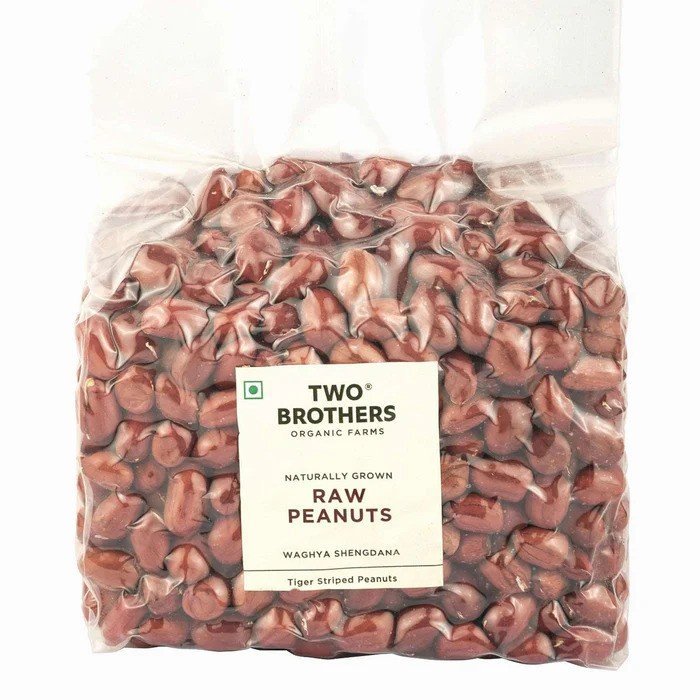Exploring the Versatility and Health Benefits of Raw Peanuts
Raw peanuts are not only a delicious snack but also a versatile ingredient with numerous health benefits. From their nutritional value to their culinary uses, raw peanuts are a staple in many diets worldwide. In this comprehensive guide, we will delve into the various aspects of raw peanuts, highlighting their benefits, uses, and answering common questions about this incredible legume

Understanding Raw Peanuts
Raw peanuts, also known as groundnuts, are the seeds of the peanut plant. Unlike roasted or salted peanuts, raw peanuts are unprocessed and retain all their natural nutrients. These legumes are packed with proteins, healthy fats, vitamins, and minerals, making them a nutritious addition to any diet.
Nutritional Benefits of Raw Peanuts
Protein Powerhouse
Raw peanuts are a great source of plant-based protein, making them an excellent choice for vegetarians and vegans. They contain all the essential amino acids needed for growth and repair, supporting muscle development and overall health.
Healthy Fats
Raw peanuts are rich in monounsaturated and polyunsaturated fats, which are beneficial for heart health. These healthy fats help reduce bad cholesterol levels and lower the risk of heart disease.
Vitamins and Minerals
Raw peanuts are loaded with essential vitamins and minerals, including vitamin E, magnesium, phosphorus, and potassium. Vitamin E is a powerful antioxidant that helps protect cells from damage, while magnesium and potassium are crucial for maintaining healthy blood pressure and muscle function.
Culinary Uses of Raw Peanuts
Snacking
One of the simplest and most popular ways to enjoy raw peanuts is by eating them as a snack. They can be consumed on their own, mixed with dried fruits, or added to trail mixes for a nutritious boost.
Cooking and Baking
Raw peanuts can be incorporated into various recipes, adding a nutty flavor and crunchy texture. They can be used in both savory and sweet dishes, from stir-fries and salads to cookies and cakes.
Peanut Butter
Making homemade peanut butter is another fantastic use for raw peanuts. By grinding them into a smooth paste, you can create a healthy, preservative-free spread that's perfect for sandwiches, smoothies, and baking.
Health Benefits of Raw Peanuts
Weight Management
Satiety
Raw peanuts are high in protein and fiber, which help promote feelings of fullness and reduce overall calorie intake. Incorporating raw peanuts into your diet can aid in weight management and prevent overeating.
Heart Health
Cholesterol Reduction
The healthy fats in raw peanuts can help lower LDL (bad) cholesterol levels and increase HDL (good) cholesterol levels, reducing the risk of heart disease and promoting cardiovascular health.
Diabetes Management
Blood Sugar Control
Raw peanuts have a low glycemic index, meaning they cause a slow and steady rise in blood sugar levels. This makes them a suitable snack for people with diabetes, helping to manage blood sugar levels effectively.
Raw Peanuts: Environmental and Economic Impact
Sustainable Crop
Nitrogen Fixation
Peanuts are legumes that can fix nitrogen in the soil, reducing the need for chemical fertilizers. This makes peanut farming more sustainable and environmentally friendly.
Economic Importance
Livelihoods
Peanut farming is a significant source of income for many farmers around the world, particularly in developing countries. The cultivation and processing of peanuts provide employment opportunities and contribute to local economies.
Conclusion:
Embracing the Benefits of Raw Peanuts
Raw peanuts are a versatile, nutritious, and environmentally friendly food that can be enjoyed in numerous ways. Whether you're snacking on them, cooking with them, or making homemade peanut butter, raw peanuts offer a wealth of health benefits and culinary possibilities. By incorporating raw peanuts into your diet, you can support your overall health and well-being while enjoying their delicious flavor and satisfying crunch.
FAQs
Q1: Are raw peanuts safe to eat?
A1: Yes, raw peanuts are safe to eat, but they should be stored properly to prevent contamination. It's also important to be aware of any potential allergies.
Q2: Can raw peanuts be used to make peanut butter?
A2: Absolutely! Raw peanuts can be ground into a smooth paste to make homemade peanut butter. You can add a pinch of salt or a drizzle of honey for added flavor.
Q3: What is the nutritional difference between raw and roasted peanuts?
A3:While both raw and roasted peanuts are nutritious, raw peanuts retain more of their natural vitamins and minerals because they are not exposed to high temperatures during processing.
Q4: How should raw peanuts be stored?
A4: Raw peanuts should be stored in a cool, dry place in an airtight container to prevent spoilage. They can also be refrigerated or frozen for longer shelf life.
Q5: Are raw peanuts beneficial for weight loss?
A5: Yes, raw peanuts can be beneficial for weight loss due to their high protein and fiber content, which promote satiety and reduce overall calorie intake.
By understanding the versatility and health benefits of raw peanuts, you can make informed choices about incorporating this nutritious legume into your diet. Enjoy the rich flavors, numerous health benefits, and sustainable impact of raw peanuts as part of a balanced and healthy lifestyle.
Read more articles here:-
Best recipe for making salted roasted peanuts from raw peanuts?

What's Your Reaction?










![Blog Submission Sites 2024 [High DA]](https://blognow.co.in/uploads/images/202306/image_100x75_6494a03eaff5e.jpg)
![Article Submission Sites 2023 [High DA & PA]](https://blognow.co.in/uploads/images/202307/image_100x75_64c4181f17036.jpg)
![Classified Submission Sites 2023 [High DA & PR]](https://blognow.co.in/uploads/images/202306/image_100x75_649dcd5260808.jpg)




![Article Submission Sites 2023 [High DA & PA]](https://blognow.co.in/uploads/images/202307/image_750x415_64c4181f08ed5.jpg)
![Classified Submission Sites 2023 [High DA & PR]](https://blognow.co.in/uploads/images/202306/image_750x415_649dcd5247eeb.jpg)
![Blog Submission Sites 2024 [High DA]](https://blognow.co.in/uploads/images/202306/image_750x415_6494a03e96bfa.jpg)